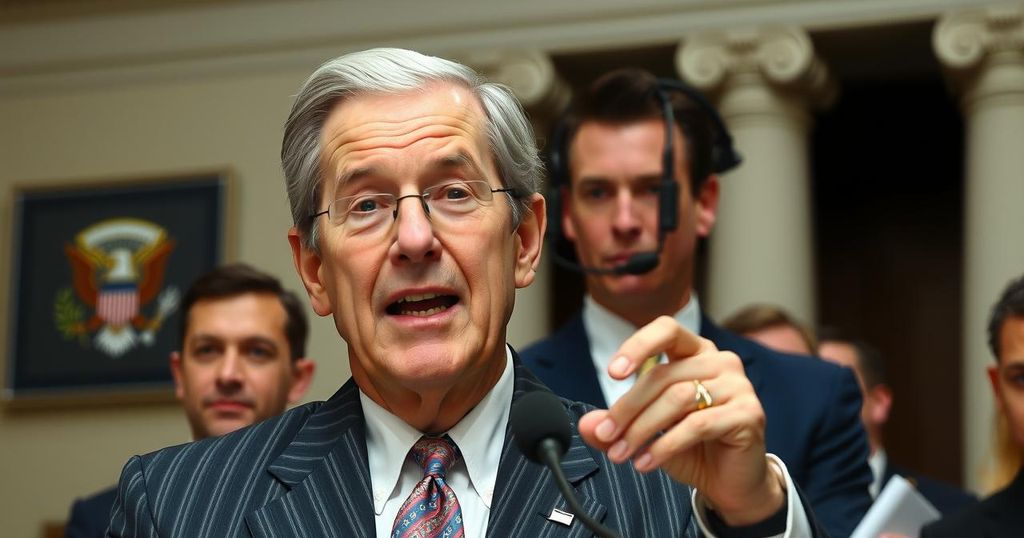Comparative Challenges: The Parallels Between Carter and Biden’s Presidencies

The challenges confronted by Jimmy Carter’s presidency in the late 1970s—spanning economic turmoil, geopolitical crises, and public distrust—are strikingly relevant to those faced by Joe Biden today. As both leaders navigate their unique challenges, significant parallels emerge, reflecting the persistent nature of domestic and international issues that continue to test the fabric of American governance.
The challenges faced by President Jimmy Carter during his administration share striking similarities with those confronting President Joe Biden today. Although more than four decades have elapsed since Carter’s presidency, the United States continues to grapple with crises related to the economy, geopolitical tensions, and public trust in government. Carter’s situation in the late 1970s encompassed economic turmoil, energy crises, and issues abroad including the Iranian hostage crisis, paralleling some of the tribulations faced by Biden such as the chaotic withdrawal from Afghanistan and the ongoing conflict in Gaza. This essay delves into the recurring themes throughout these two presidencies, emphasizing the persistence of challenges and the unyielding nature of global and domestic affairs.
Carter assumed office during a tumultuous period marked by economic instability and a prevailing sense of national insecurity. His attempts at diplomacy yielded notable successes, like the Camp David Accords; however, challenges swiftly overshadowed these achievements. The Iranian hostage crisis starkly illustrated the limits of American power during his presidency, culminating in a significant electoral loss for Carter in 1980. Likewise, President Biden’s tenure has encountered considerable challenges, including a contentious withdrawal from Afghanistan and escalating global conflicts, specifically in the Middle East and Ukraine. Despite various foreign policy successes, Biden finds himself navigating a precarious political landscape shaped by external pressures and public discontent.
An essential aspect linking the presidencies of Carter and Biden is the geopolitical landscape they faced. Carter wrestled with Soviet ambitions in Afghanistan while grappling with domestic energy crises fueled by international factors. Conversely, Biden is managing the ramifications of Russia’s incursion into Ukraine and the strategic complexities of American relations with China, rooted in pivotal decisions made during the Carter administration. Both presidents encountered obstacles escalating from international conflicts, highlighting the intricacies of leading a nation amid global unrest.
Domestic challenges have also shaped the narratives of both administrations. Carter’s era was characterized by eroding public trust in government, exacerbated by economic woes and political scandals. President Biden has similarly struggled to restore faith in government amid rising inflation and widespread public dissatisfaction. Despite a resilient labor market during Biden’s presidency, public approval ratings have remained low, echoing the sentiment of disillusionment that marked Carter’s time in office. The enduring distrust reflects a significant evolution in American political culture, necessitating a closer examination of the public’s faith in governance.
Furthermore, the post-presidential paths of both leaders illustrate diverging responses to their legacies. Carter transformed into a humanitarian figure, dedicating his life to philanthropic efforts and global health initiatives, earning the Nobel Peace Prize in 2002. In contrast, former President Donald Trump, who often invokes comparisons between his presidency and Carter’s, remains active within political spheres, emphasizing his ongoing role in American governance. This juxtaposition raises intriguing questions about the nature of political engagement and leadership beyond presidential terms.
In conclusion, the parallels between Carter and Biden highlight persistent challenges faced by American presidents across generations. Economic, geopolitical, and societal pressures continue to test the resolve of leaders and shape the trajectory of the nation. Both presidents offer insights into the complexities of governance in tumultuous times, reinforced by a legacy of resilience amid ongoing struggles for public trust and effective crises management. The lessons learned from their presidencies resonate profoundly, reminding future leaders of the intricate balance required to navigate the tumultuous landscape of domestic and international affairs.
The analysis of Presidents Jimmy Carter and Joe Biden reflects on the timeless nature of political challenges within the United States. It emphasizes core themes including economic crises, foreign policy failures, and public distrust, illustrating how these issues have persisted over the years. The context of each presidency provides necessary understanding into the prevailing national sentiment and international landscape that these leaders faced, while drawing parallels between historical and contemporary events.
This examination highlights the repeating themes of struggle and challenge faced by American leaders, notably Presidents Carter and Biden. Economic instability, geopolitical tensions, and declining public trust have marked both presidencies, underscoring an ongoing crisis of confidence in government. Reflecting on past presidencies can offer valuable insights into current political dynamics and the enduring nature of systemic challenges, shaping the future trajectory of American leadership.
Original Source: www.bbc.com








